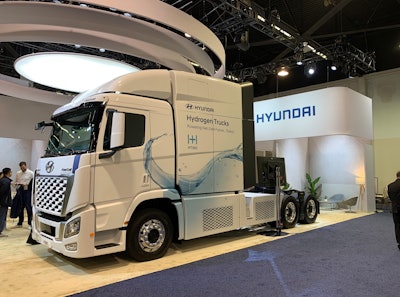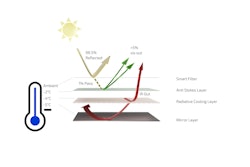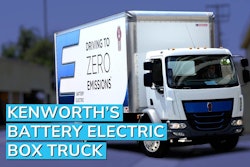
While attempts have been made in the past to repeal the Federal Excise Tax, tougher emissions regulations combined with growing costs for zero-emission vehicles may help propel the latest effort across the finish line.
The Federal Excise Tax got its start over 100 years ago to help pay the hefty price tag for World War I. U.S. Congressman Doug LaMalfa (R-Calif., District 1) who has long supported repealing the FET noted that the tax on new heavy-duty vehicles has grown through the years from 3 to 12%.
Now with company and government mandates in place calling for a fast-paced switch to costly zero-emission vehicles, some even before the end of this decade, LaMalfa thinks a bipartisan FET repeal bill he introduced to the House of Representatives in March has a better chance of passing.
The Modern, Clean and Safe Trucks Act of 2023 (H.R. 1440) was also introduced at the same time in the Senate by U.S. Senators Todd Young (R-Ind.) and Ben Cardin (D-Md.), who noted that the tax is “the highest levied on any product” and that it “discourages private investment to modernize America’s truck fleet with cleaner and safer trucks and trailers.”
The seven-page bill points out that the 12% FET adds between $12,000 and $22,000 to the cost of a new heavy truck, tractor or trailer. That's not including zero emission electric and hydrogen fuel cell trucks which cost much more.
[Related: Near-zero diesel trucks more popular than ever]
LaMalfa, who supported a prior effort to repeal FET in 2020 during the height of the Covid-19 pandemic, told Commercial Carrier Journal that increased pressure on the trucking industry is giving the latest repeal effort a better shot at passing.
“Thanks to the continuous efforts of California and the Biden Administration, new rules, regulations and requirements are being thrown on any vehicle daring to continue using gas and diesel,” LaMalfa said. “These mandates aren’t free. They spike the cost of trucks, tractors and other heavy equipment by thousands of dollars. But the facts on the ground don’t change: trucks carry 72% of the nation’s freight by tonnage (and 81% by revenue). The left’s preferred alternative, electric and zero-emission trucks, aren’t affordable. Repealing the FET puts safer and cleaner trucks on the road.”
When asked how confident he was in the bill’s passage, LaMalfa said it was vital to package the bill with other issues that have caught the attention of Congress including supply chain hang-ups.
“The key to passing this bill will be finding the appropriate vehicle to include it in,” LaMalfa said. “There are several tax provisions waiting to be extended, and there is some interest in Congress considering a broad supply chain package too.”
LaMalfa is under no illusions that H.R. 1440 is up against plenty of opposition.
“Some Members consider the FET to be fair because it taxes some of the heaviest vehicles on the road, but they fail to see that it is completely arbitrary; you’re charged the full amount whether that truck is on the road for 20 years or 20 minutes over its lifetime,” LaMalfa said. “Every other Highway Trust Fund revenue source is based on usage like gas tax, tire tax, annual use tax, etc.”
Since its introduction to the House in March, H.R. 1440 has remained in the House Committee on Ways and Means. When asked how long it might take before the bill comes up for a final vote, LaMalfa said, "Congress runs on deadlines. Most bills don’t pass until Christmas or New Years.”
In the meantime, LaMalfa said those wishing to see the bill’s passage should get in touch with their representatives and “remind them that this is not just another tax repeal. It’s putting safer trucks on the road at a time when accidents involving heavy trucks is increasing. It’s putting cleaner trucks on the road, at a time when fleets are being required to reduce emissions. It’s paying for all the mandates and rules that have driven up the cost of buying, owning and operating a truck. It’s eliminating an unreliable and arbitrary fee that is paid into a Trust Fund, which Congress neglected into insolvency.”
Supporters of H.R. 1440 include the American Trucking Associations, American Truck Dealers and the Zero Emission Transportation Association.











